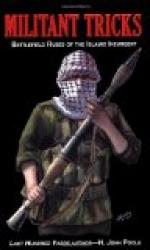The pine knots caught and blazed up, and I went back comfortably into my chair and laughed at him.
“O General! Come! You don’t believe in love at first sight.”
I liked to make him talk sentiment. He was no more afraid of it than of anything else, and the warmest sort came out of his handling natural and unashamed.
“I don’t? Yes, I do, too,” he fired at me. “I know it happens, sometimes.”
With that the lines of his face broke into the sunshiniest smile. He threw back his head with sudden boyishness, and chuckled, “I ought to know; I’ve had experience,” he said. His look settled again thoughtfully. “Did I ever tell you that story—the story about the day I rode seventy-five miles? Well, I did that several times—I rode it once to see my wife. But this was the first time, and a good deal happened. It was a history-making day for me all right. That was when I was aide-de-camp to General Stoneman. Have I told you that?”
“No,” I said; and “oh, do tell me.” I knew already that a fire and a deep chair and one of the General’s stories made a good combination.
His manner had a quality uncommon to storytellers; he spoke as if what he told had occurred not in times gone by, but perhaps last week; it was more gossip than history. Probably the sharp, full years had been so short to him that the interval between twenty and seventy was no great matter; things looked as clear and his interest was as lively as a half-century ago. This trick of mind made a narrative of his vivid. With eyes on the fire, with his dominant voice absorbing the crisp sound of the crackling wood, he began to talk.
“It was down in Virginia in—let me see—why, certainly, it was in ’63—right away after the battle of Chancellorsville, you know.” I kept still and hoped the General thought I knew the date of the battle of Chancellorsville. “I was part of a cavalry command that was sent from the Army of the Potomac under General Stoneman—I was his aide. Well, we did a lot of things—knocked out bridges and railroads, and all that; our object was, you see, to destroy communication between Lee’s army and Richmond. We even got into Richmond—we thought every Confederate soldier was with Lee at the front, and we had a scheme to free the prisoners in Libby, and perhaps capture Jefferson Davis—but we counted wrong. The defence was too strong, and our force too small; we had to skedaddle, or we’d have seen Libby in a way we didn’t like. We found a negro who could pilot us, and we slipped out through fields and swamps beyond the reach of the enemy. Then the return march began. Let me put that log on.”
“No. Talk,” I protested; but the General had the wood in his vigorous left hand—where a big scar cut across the back.
“You needn’t be so independent,” he threw at me. “Now you’ve got a splinter in your finger—serves you right.” I laughed at the savage tone, and his eyes flashed fiercely—and he laughed back.




